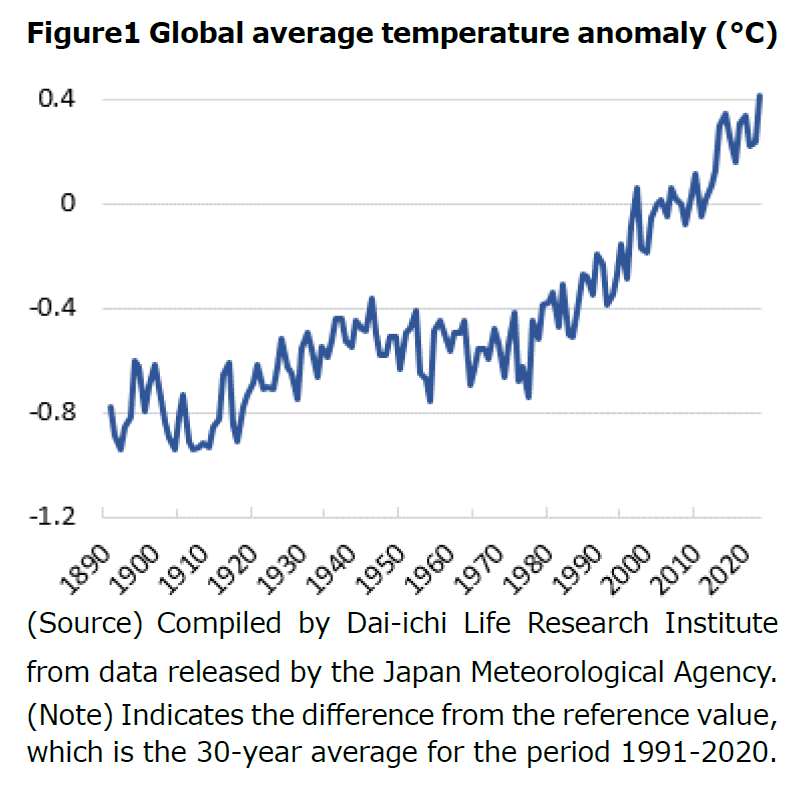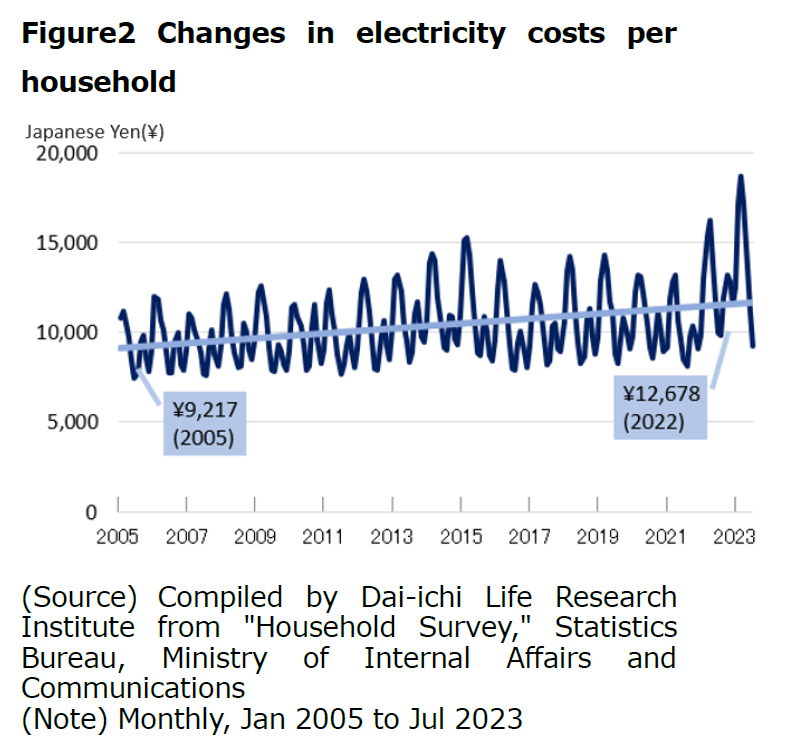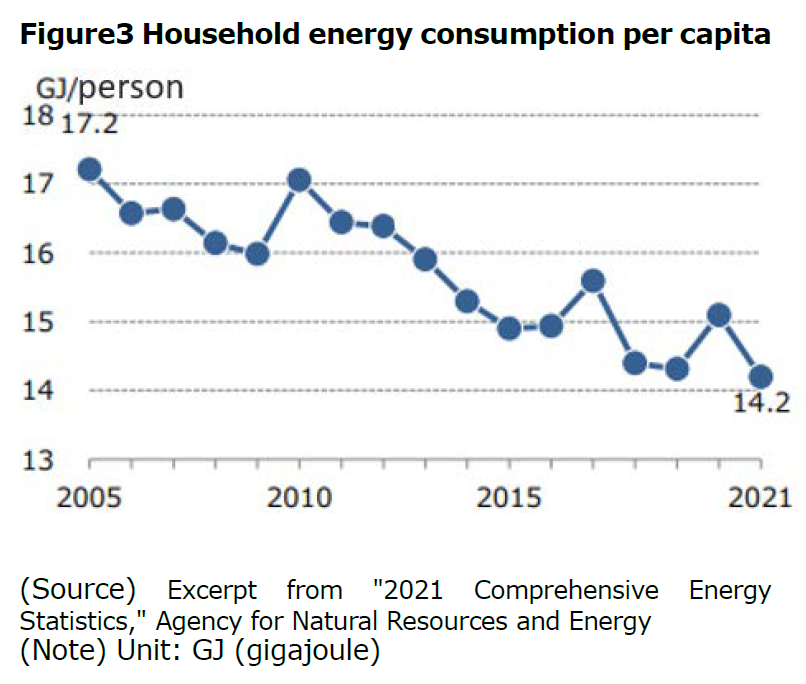

- Report Index
- Can we expect lower electricity bills after high summer prices?
- DLRI Report
-
2023.9
Can we expect lower electricity bills after high summer prices?
Mei Makinouchi
The Start of Earth's "Boiling Era"
Amid the expected unprecedented increase in the world's average temperatures for July 2023, United Nations Secretary-General Guterres issued a cautionary statement during a press conference at the end of the same month, declaring, "The era of global warming has ended, and the era of global boiling has arrived." Indeed, subsequent announcements by Japan Meteorological Agency confirmed that July 2023 recorded the highest average temperatures since the beginning of record-keeping in 1891, further supporting the aforementioned statement (Figure 1).

Electricity Costs Rising Despite Subsidy and Reduced Energy Consumption
Searing heat makes life difficult without air conditioning, and soaring electricity bills cast a shadow over household budgets. In 2022, monthly electricity costs were about 1.4 times higher than 2005 levels (Figure 2).

In response to the rise in energy prices due to factors such as a weaker yen and Russia's invasion of Ukraine, the government initiated subsidy programs for gasoline in January 2022 and for electricity and gas in January 2023 as part of its "Rapid Mitigation Measures".
According to the Agency for Natural Resources and Energy, these measures have reduced the average household's monthly electricity bill by about ¥2,800. In addition, our energy consumption has been gradually decreasing due to energy-efficient appliances and other factors (Figure 3). Despite these efforts, electricity costs continue to rise.

Imminent Winter Energy Poverty
Japan is highly vulnerable to the effects of high energy prices, as it relies on thermal power for about three-quarters of its electricity generation.As of August 2023, crude oil prices have stabilized at around $80 per barrel. This is a significant drop from the over $130 per barrel seen in March 2022.
However, the OPEC Plus group of mostly Middle Eastern countries has not eased its coordinated production cuts due to various considerations, such as funding to diversify the economy from a narrow emphasis on oil production and stabilize the country's income.
Even after enduring the summer, there is a pressing concern that "energy poverty" could reemerge as a social issue in winter, when heating needs arise and people are unable to fully utilize air conditioning and lighting. It is important to keep a close eye on the situation as it develops.
Original in Japanese:
https://www.dlri.co.jp/report/dlri/279935.html
Disclaimer:
This report has been prepared for general information purposes only and is not intended to solicit investment. It is based on information that, at the time of preparation, was deemed credible by Dai-ichi Life Research Institute, but it accepts no responsibility for its accuracy or completeness. Forecasts are subject to change without notice. In addition, the information provided may not always be consistent with the investment policies, etc. of Dai-ichi Life or its affiliates.


